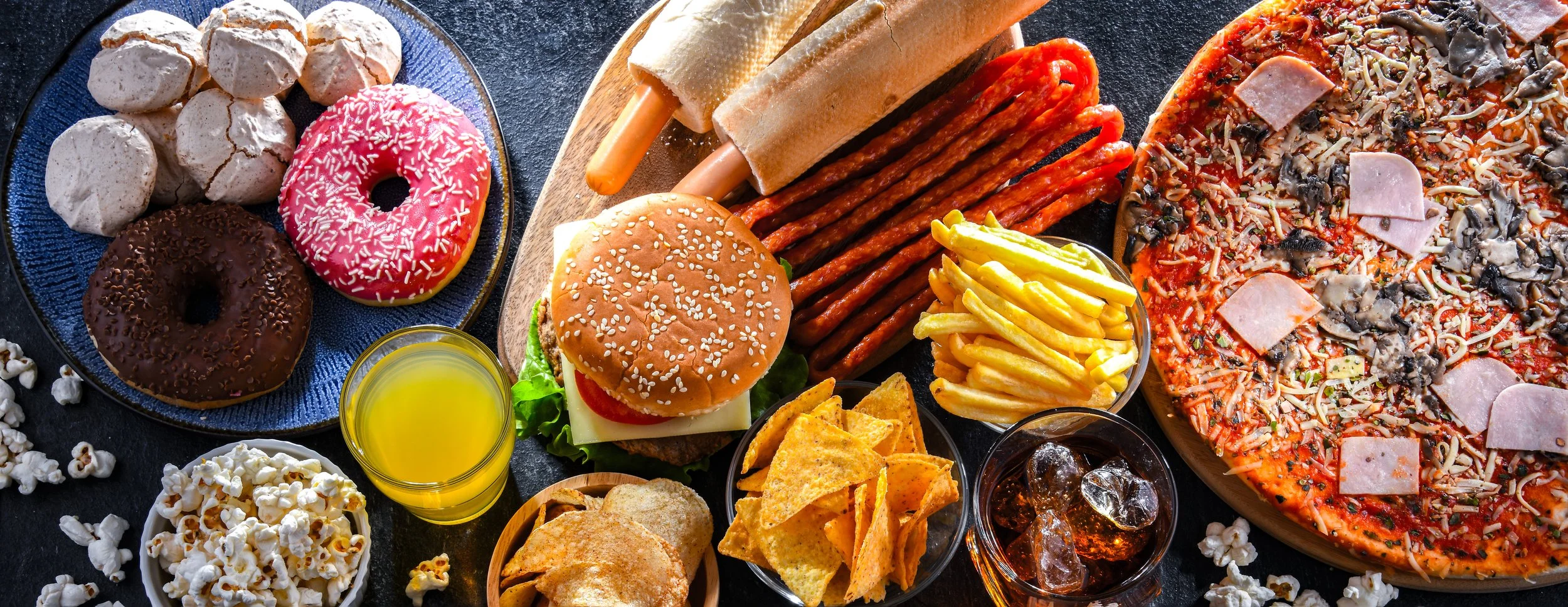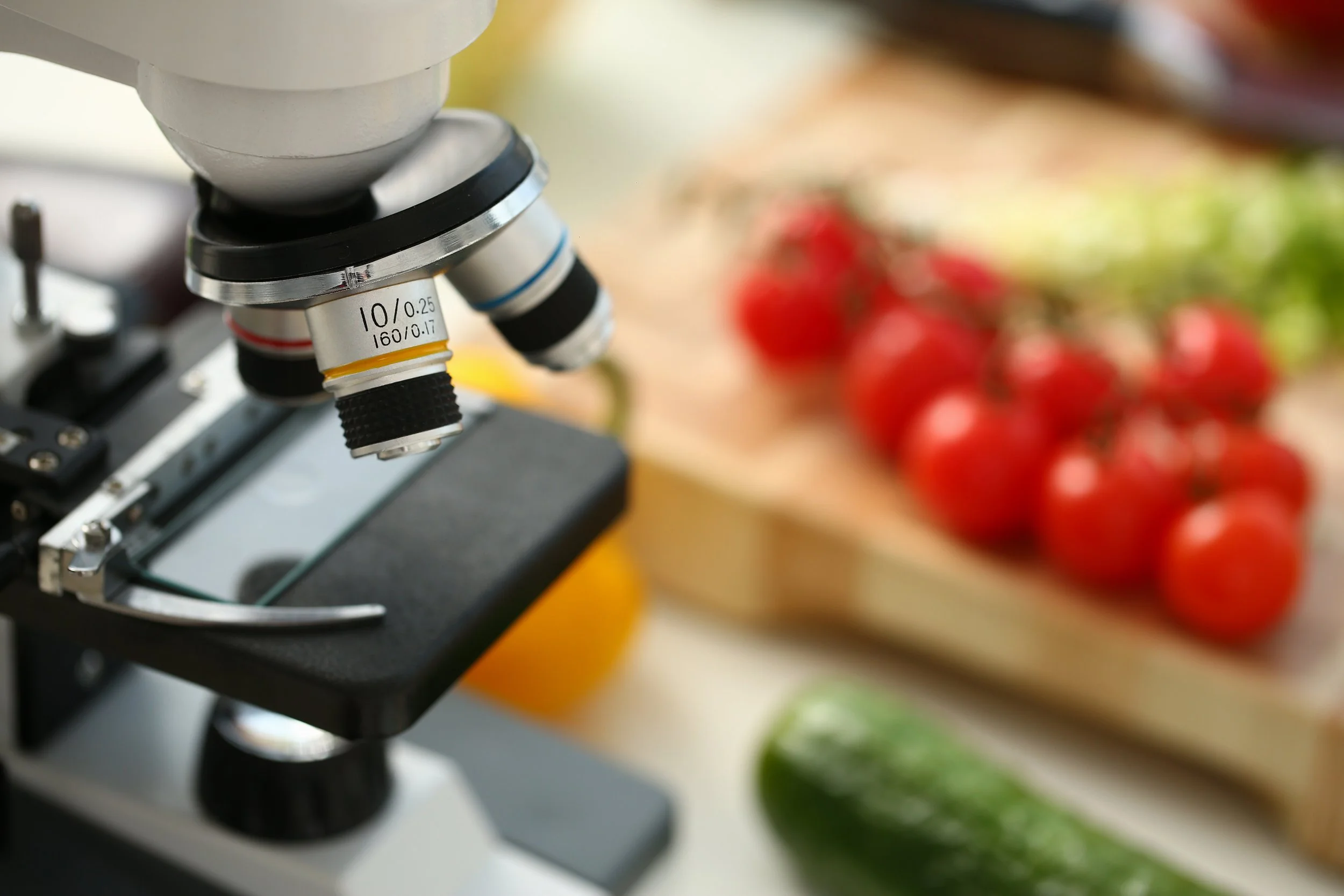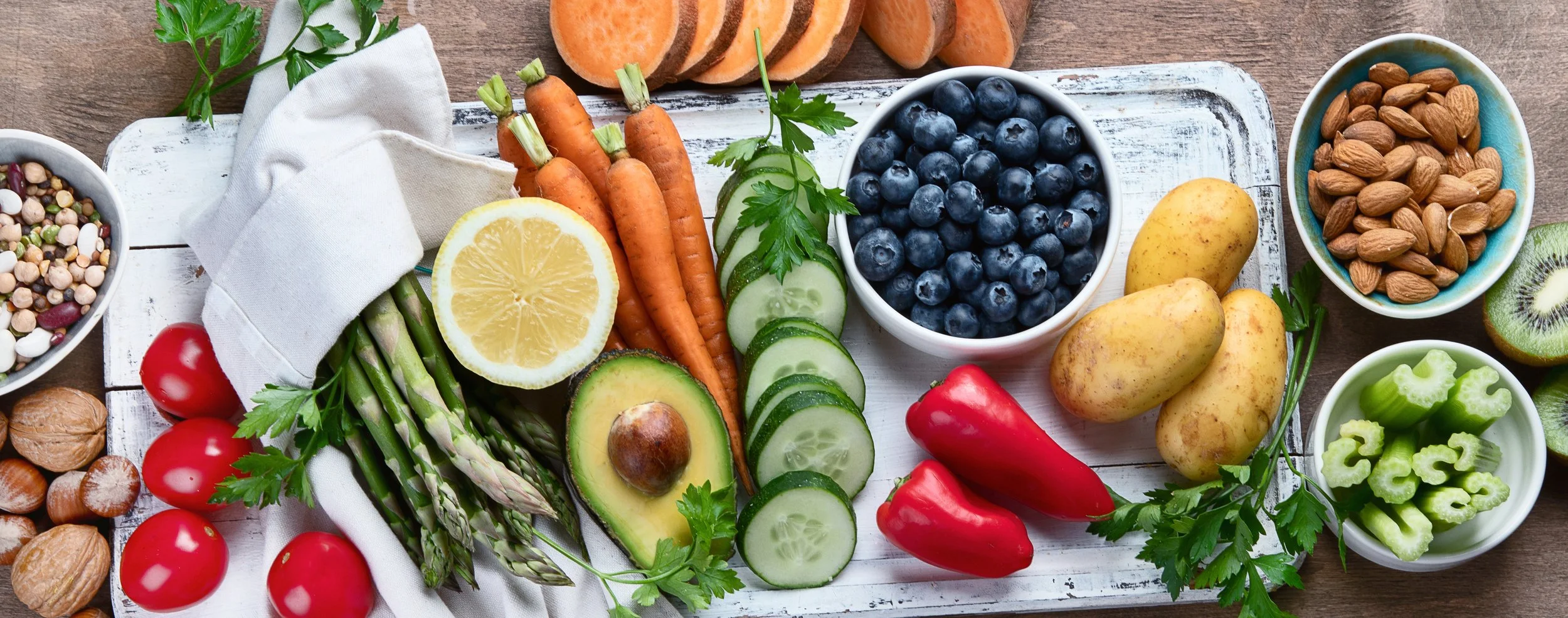Why eat a predominantly WHOLE FOODS vegan diet?
It’s now easier than ever to choose a vegan lifestyle! Most supermarkets now offer clearly labelled vegan foods and a tempting array of meat and dairy alternatives. From vegan bacon and sausages to burgers and pizzas, the options seem endless. However, this abundance of vegan convenience foods and “junk food” can make it a real challenge to consistently choose the healthier path.
Whether you’ve made the choice to be vegan for ethical or environmental reasons, it’s wise to be wary when it comes to your food options. Be careful not to fall into the trap of assuming that a ‘plant-based' label automatically signifies nutritional value. All too often, these products are loaded with processed grains, excessive salt, hidden sugar and unhealthy saturated fat - far removed from truly nourishing plant-based eating.
Relying on junk food can be a big mistake
This is a mistake that can creep up on us unnoticed, until the consequences manifest. We’re now living in a world where humans lead extremely busy lifestyles. When we combine this factor with the aggressive marketing of highly processed food, this leads to a reliance on junk food becoming the norm, no matter what your dietary choices are. Sadly, poor nutrition is a leading cause of death globally, contributing to a significant number of preventable deaths each year.
Extensive research, such as findings published in the British Medical Journal and highlighted by Nutrition Facts, clearly links poor diets to ill health, disability, and even premature death.
But what if we shifted our focus? Instead of solely treating sickness, what if we actively prioritised prevention? Science strongly supports this approach.
There is no such thing as “dying of old age”...
Barring trauma, we all eventually die from disease. How soon that happens, and how long we live with its effects, is largely in our hands. While genetics do play a role, they aren't set in stone. Epigenetics shows the powerful influence of our lifestyle, with nutrition being a major factor that can alter gene expression and mitigate high genetic risk of disease.
“The evidence is strong, consistent, and compelling that a diet of predominantly, or even exclusively, whole plant foods can promote health, selectively treat and reverse disease, and confer comparable benefit to the planet.” - Source: National Library of Medicine
Eating a predominantly whole-food, plant-based diet is clinically proven to be the healthiest diet on the planet. You can prevent 14 out of 15 leading causes of death, treat many of the deadliest diseases and even reverse 5 of them!
To promote health, make sure that you centre your diet around eating a variety of:
Whole grains
Legumes
Fruit & Veg
Nuts
Herbs & Spices
Seeds
Why are whole-foods so incredibly beneficial for our health?
When whole-foods are the foundations of your diet you are consistently fuelling your body with food that’s nutritionally dense. These nutritional powerhouses are naturally low in ingredients that are detrimental to our well-being like added sugars, saturated fat and excessive salt, whilst being abundant in a variety of vitamins and minerals that are essential for optimal health.
Consuming nourishing, natural foods means that you are supplying your body with a wealth of key nutrients.
Here’s a closer look at some of the health benefits of eating whole-food plant based
-
Fuelling your body with whole food plant based protein offers significant health advantages. Unlike animal sources, which often carry higher levels of saturated fat, plant-based options like legumes, tempeh, nuts, and seeds are naturally low in saturated fat and completely cholesterol-free, making them ideal for heart health. By choosing plant-based proteins, you not only support muscle repair and growth but also supply your body with a diverse array of essential vitamins and minerals.
-
Carbohydrates are our primary source of energy. Choosing whole food plant based sources of carbohydrates like whole grains offers us better health benefits than refined options. Whole grains have a low glycemic index, providing a sustained release of energy that keeps you energised for longer. Unlike processed carbohydrates that cause rapid glucose spikes, whole grains release energy gradually into your bloodstream, promoting more stable energy levels throughout the day.
-
Dietary fat is another essential nutrient that gives our bodies energy as well as helping with the absorption of fat-soluble vitamins and minerals. Plant based sources of fat are naturally low in saturated fat, which leads to raised LDL (bad) cholesterol and instead contain healthy unsaturated fat which actually lower LDL cholesterol, reducing the risk of heart disease and strokes.
-
Plant-based whole foods are excellent sources of dietary fibre, which is needed to support your digestive system and is crucial for maintaining a healthy gut microbiome. Fibre feeds the beneficial bacteria found in your gut, which in turn helps with the absorption of other key vitamins and minerals. In addition to this, it also aids in lowering cholesterol and controlling blood sugar levels.
-
Plant-based food sources such as fruits and vegetables have a naturally high water content. Human bodies are made up of a significant percentage of water (around 60% on average,) our brains alone are composed of 75% water! Studies have shown that dehydration actually causes our brains to shrink which changes our brain function.
Water is necessary for nearly all of your bodily functions to perform well as it helps transport nutrients and oxygen to your cells, aids digestion, regulates your body temperature and contributes towards healthy joints, tissue and skin. It’s no wonder why it’s so important for our survival! -
Vitamins and minerals, abundant in fruits and vegetables, are fundamental for vibrant health. They offer vital support for your immune system, contribute towards healthy growth and development and ensure all of your cells and organs function optimally. A well planned vegan diet can provide you with all the nutrients you require, with very little need for supplementation (read our blog post on supplements for more details.) It’s important to ensure you’re maintaining adequate levels of vitamins and minerals in your diet to help prevent the risk of disease.
-
Plants are rich in antioxidants that help protect your cells from damage caused by free radicals, they fight off the inflammation which leads to various chronic illnesses. Consuming antioxidant rich foods helps reduce oxidative stress and potentially lowers the risk of cancer, heart disease and other health issues.
It’s all connected. The diet that's best for heart health is also best for brain health, kidney health, and so much more.
We should all be eating more whole plant food to live our healthiest lives.
The power to transform your health is in your hands
Don’t let another day pass without prioritising your well being
I’m ready to help you every step of the way!
If you’re feeling inspired to take control of your health by utilising the power of whole foods then I will support you. I have years of experience as a vegan personal trainer and nutritionist helping my clients build futures that are healthier, happier and full of vitality.
Contact me today and book a free discovery call to learn more about my online coaching services. With my help, I’m certain that you’ll meet your goals, whether you’re looking to lose fat, gain muscle or both, your journey can start today!
With love,
Paul & Gemma
Hench Herbivore
PS. We also offer a personalised meal planning service which is ideal for those of you looking to optimise your nutrition on a vegan diet. Be sure to check out our fantastic range of e-books bursting with healthy vegan recipes.





